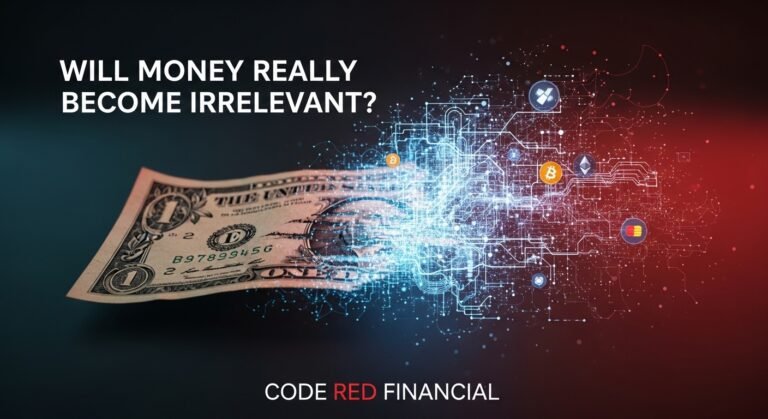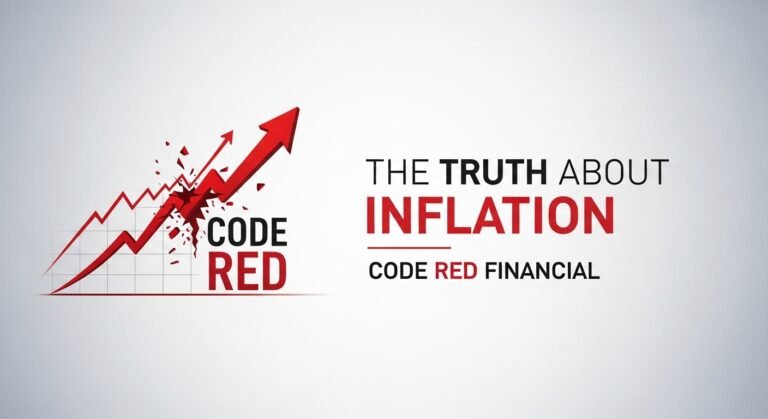
We live in a world that often glorifies young tech entrepreneurs and startup wunderkinds, but there’s a powerful narrative that deserves more attention: the incredible success of entrepreneurs who began their journeys after or near 40. These remarkable individuals prove that innovation, passion, and entrepreneurial spirit have no expiration date. So, before you ride off into the sunset believing that your best years are behind you, think again. Your most extraordinary chapter could be waiting just around the corner.
The Myth of the Young Entrepreneur
Popular culture loves the story of the 20-something entrepreneur who revolutionizes an industry from their garage or dorm room and don’t get me wrong, this is terrific. Icons like Mark Zuckerberg, Steve Jobs, and Bill Gates built empires before they hit 30, creating the illusion that entrepreneurial success is reserved for the young. But the truth is far more inspiring and nuanced.
Some of the most successful entrepreneurs didn’t hit their stride until their 40s, 50s, or even later. Their stories defy the myth that “success must come early”—and show us that timing, passion, and life experience matter more than age.
The Surprising Truth About Late-Blooming Entrepreneurs
Recent studies reveal a surprising statistic: the average age of a successful startup founder is actually 42. This challenges the widespread misconception that entrepreneurship is a young person’s game. In fact, entrepreneurs over 40 often bring unique advantages that their younger counterparts simply cannot match.
Mature entrepreneurs benefit from:
- Professional experience: A wealth of industry knowledge
- Established networks: Powerful connections that can open doors
- Financial stability: Greater access to capital and fewer financial pressures
- Emotional intelligence: Wisdom and resilience that help navigate challenges with grace
Advantages of Starting Later
1. Professional Experience
By the time you hit 40, you’ve likely spent decades learning about your industry. You understand the complex business landscape, have faced multiple challenges, and most importantly, you know what works and what doesn’t. These insights give you a head start compared to younger entrepreneurs who are still figuring it all out.
2. Robust Professional Networks
Over the years, you’ve built relationships with colleagues, clients, mentors, and investors. These professional connections are invaluable resources—people who can offer advice, guidance, and even financial backing. If you tap into this network, it can help accelerate your business.
3. Financial Stability
Older entrepreneurs typically have a stronger financial foundation than younger counterparts. Many have:
- More savings to invest
- Better credit to access funding
- Stability in personal finances that allow for greater risk-taking
This financial security can provide the freedom to make decisions that align with long-term goals, rather than reacting out of financial necessity.
4. Emotional Intelligence
Age comes with wisdom—and this wisdom leads to greater emotional intelligence. Mature entrepreneurs are typically better at:
- Managing stress in high-pressure situations
- Making thoughtful, calculated decisions rather than impulsive ones
- Leading teams with empathy and understanding
These qualities give them a significant edge when navigating the highs and lows of entrepreneurship.

Inspiring Late-Blooming Entrepreneurs
Let’s look at 30 extraordinary entrepreneurs who prove that success can come later in life. These individuals turned their ideas into thriving businesses and show us that it’s never too late to follow your dreams.
Technology Trailblazers
- Eric Yuan – Zoom (Age 41): Eric Yuan had been working in the video conferencing industry for years, but it wasn’t until he was 41 that he founded Zoom. His platform became a lifeline during the COVID-19 pandemic, and today, Zoom is one of the most recognized tech brands in the world.
- Reed Hastings – Netflix (Age 40s): While Netflix was technically founded when Hastings was in his late 30s, it was in his 40s when he transformed it from a DVD rental service into the global streaming giant we know today. The key takeaway? Vision and persistence can take time to come to fruition.
- Brian Chesky & Joe Gebbia – Airbnb (Age 30s-40s): Airbnb co-founders Brian Chesky and Joe Gebbia were in their 30s when they launched the platform, but it wasn’t until they were in their 40s that they achieved massive scale and global recognition. Their success is a reminder that even if the journey begins earlier, full success can take time.
- Jack Dorsey – Square (Age 42): The co-founder of Twitter launched his second company, Square, at 42. The payment technology company has revolutionized how businesses accept payments, growing into a billion-dollar business.
- Reed Hastings – Netflix (Age 40s): Reed Hastings was in his early 40s when Netflix began its major transformation into the global streaming service we know today. The company’s reinvention shows that success doesn’t happen overnight.
Retail Giants
- Ray Kroc – McDonald’s (Age 52): Kroc didn’t buy the rights to McDonald’s until he was 52, and then he turned a small fast-food restaurant into a multi-billion-dollar empire. His story proves that sometimes, it’s not about creating something from scratch—it’s about recognizing potential and scaling it.
- Sam Walton – Walmart (Age 44): Walton founded Walmart at 44, revolutionizing the retail industry with his concept of low-cost, high-volume retailing. Today, Walmart is one of the largest companies in the world, proving that the right idea at the right time can lead to massive success.
- Ingrid Newkirk – PETA (Age 50): Ingrid Newkirk founded People for the Ethical Treatment of Animals (PETA) at 50 and has since transformed it into one of the world’s most influential animal rights organizations. Her story highlights the power of social entrepreneurship and using one’s voice to drive change.
- David Green – Hobby Lobby (Age 40): David Green founded Hobby Lobby at 40 and turned it into a national chain of arts-and-crafts stores, proving that creative business ideas can lead to enormous success later in life.
- Jeffrey Pfeffer – “Power” author and entrepreneur (Age 50s): A former professor who turned his knowledge into a successful speaking and consulting career, Pfeffer is a prime example of finding entrepreneurial success with a background in academia.
Food and Beverage Innovators
- Howard Schultz – Starbucks (Age 44): Schultz joined Starbucks at 30, but it was when he was 44 that he expanded the company from a small coffee bean shop into a global brand. His vision for creating a “third place” between home and work changed the coffee culture forever.
- Julia Child (Age 49): After starting her culinary career in her 40s, Julia Child went on to become the world’s most beloved chef, teaching Americans how to cook French cuisine with ease. Her passion, commitment, and unique teaching style made her a household name.
- Kenny Rogers – Kenny Rogers Roasters (Age 55): The legendary musician started a chicken restaurant chain at 55. His entry into the food industry was a massive success, proving that it’s never too late to venture into something completely new.
- Patricia Williams – Auntie Anne’s Pretzels (Age 40s): Patricia Williams began Auntie Anne’s at 40, turning a small pretzel cart into an international franchise empire.
- Burt Shavitz – Burt’s Bees (Age 50s): Shavitz co-founded Burt’s Bees in his 50s, and it became one of the most successful natural beauty companies in the world. It was sold to Clorox for nearly $1 billion, proving that passion for natural products can pay off—even late in life.
Fashion Icons
- Vera Wang (Age 40): After a successful career as a figure skater and fashion journalist, Vera Wang entered the fashion design industry at 40. Her bridal collections revolutionized the wedding industry, and she went on to become a global fashion icon.
- Giorgio Armani (Age 41): Giorgio Armani was in his early 40s when he started his fashion empire. Today, Armani is one of the most respected names in high-end fashion. His success is a testament to the fact that the fashion world has no age limits.
- Eileen Fisher (Age 50): Eileen Fisher started her own clothing line at age 50. Known for its minimalist designs, her brand became synonymous with women’s fashion, showing that older entrepreneurs can make a significant mark in highly competitive industries.
- Tommy Hilfiger (Age 40): While Hilfiger’s brand began taking off in his late 30s, it was in his 40s that the brand became truly global. His brand remains one of the most recognizable names in fashion today.

Creative Entrepreneurs
- Colonel Harland Sanders – KFC (Age 62): Perhaps one of the most famous late-blooming entrepreneurs, Colonel Sanders started Kentucky Fried Chicken at 62. His secret recipe and persistence made KFC a household name and a global phenomenon.
- Laura Ingalls Wilder – Author (Age 65): Wilder didn’t publish her first book until she was 65. The Little House on the Prairie series became an American classic, proving that age
is no barrier to creating iconic work.
- Toni Morrison (Age 39-50s): Toni Morrison began writing novels in her 30s, but it wasn’t until she was in her 40s and 50s that she earned literary fame and the Nobel Prize in Literature.
- Bob Ross (Age 41): The beloved painter and television personality was 41 when he began his TV show The Joy of Painting. Today, he is an enduring icon, and his business became a multi-million-dollar enterprise after his death.
- Raymond Weil (Age 50): After a successful career in the watch industry, Raymond Weil started his own luxury watch brand at 50. His company is still a recognized leader in the high-end watch market.
Social Entrepreneurs
- Craig Newmark – Craigslist (Age 40): Craig Newmark started Craigslist in his 40s, and what began as a small email list for friends has become a global online marketplace, transforming the way we buy and sell goods and services.
- John Paul DeJoria – Paul Mitchell (Age 40): John Paul DeJoria co-founded the Paul Mitchell hair care brand and later started the tequila company Patrón, both after age 40, building two billion-dollar companies.
- Martha Stewart (Age 41): Martha Stewart became a household name after creating her lifestyle brand in her 40s. Today, she’s an iconic figure in media and entrepreneurship.
- Jon Taffer – Bar Rescue (Age 50): Jon Taffer didn’t create his first big success until his 50s, as the star of Bar Rescue. His innovative approach to business and hospitality made him a reality TV sensation and a savvy entrepreneur.
- Sara Blakely – Spanx (Age 41): Blakely founded Spanx at age 41, starting with a simple idea to create better shapewear. She turned her idea into a billion-dollar business, becoming the youngest self-made female billionaire in the U.S.
- Tim and Nina Zagat – Zagat (Age 50s): After starting the Zagat guide to restaurants in their 50s, Tim and Nina Zagat revolutionized the way people discover and rate restaurants. They built a global brand that was eventually acquired by Google.
Your Time Is Now
It’s clear: age is not an obstacle and let’s face it, challenges still exist, however, you are now armed with experience and wisdom beyond your youthful exuberance and—it’s a powerful asset. The accumulated knowledge, professional networks, and emotional intelligence you have gained over the years will empower you to build a thriving business. Whether you’re 30, 40, 50, or beyond, the entrepreneurial world is ready for your ideas, energy, and experience.
Remember: It’s never too late to start. The world needs your perspective, your wisdom, and your drive. Your most exciting journey might just be beginning. The first step is all it takes. Let’s make it happen!






